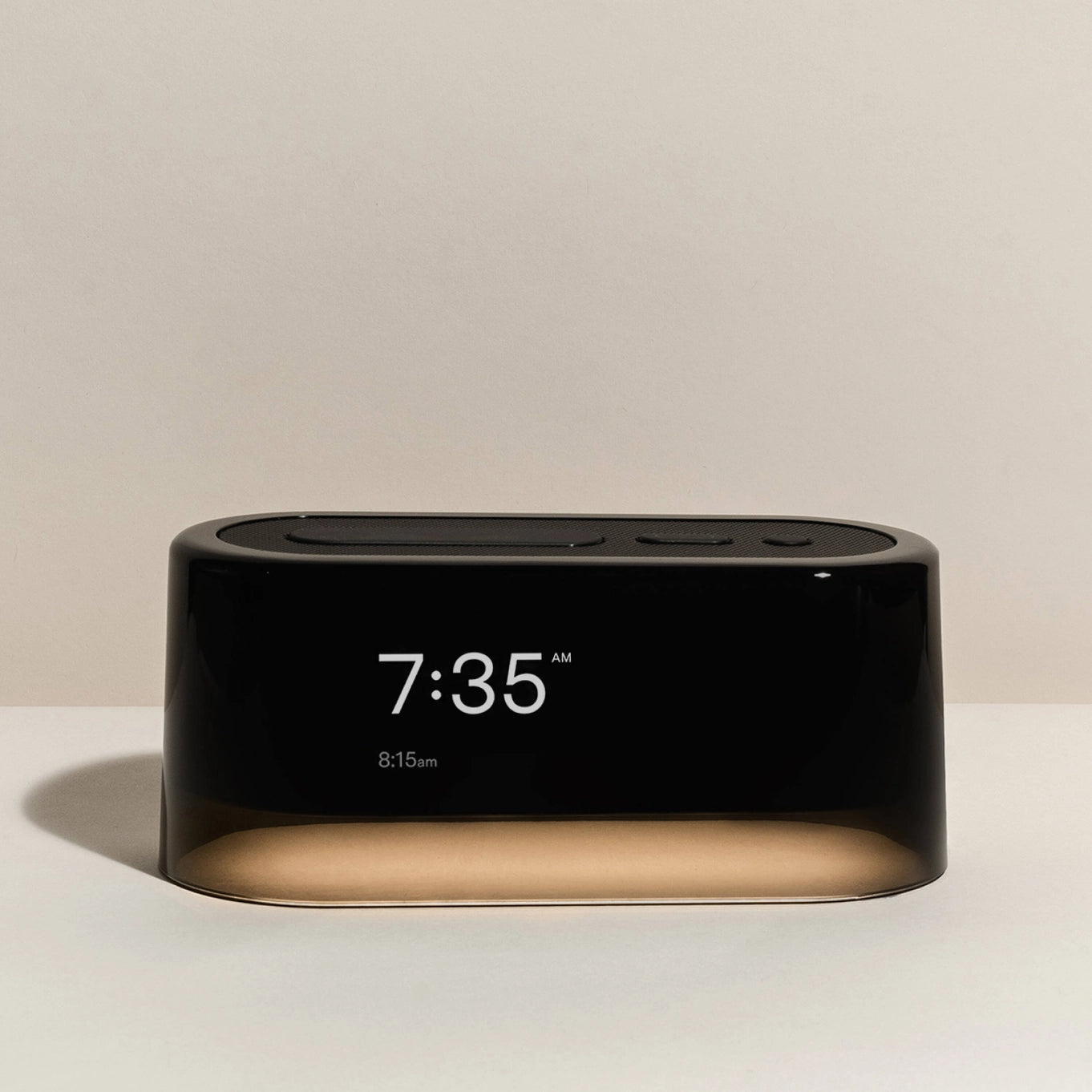Waking Dreams
Loftie Alarm Clock
Loftie Alarm Clock
Couldn't load pickup availability
More Dream, Less Screen.
Get to sleep faster when you kick your smartphone out of the bedroom and snuggle up with our awesome music, meditations, and bedtime stories, playable right from the device.
Get the rest you deserve with all the white noise and nature sounds you could dream of, plus a gentle nightlight when you need it. Wake up refreshed with a two-phase alarm that mimics your body’s natural waking process and features refreshingly non-alarming alarm sounds.
The Alarm Clock for Non-Alarmists
⏰⏰⏰⏰
Side Effects of Using Your Phone at Night
It’s scientifically proven: The body knows us better than we do—especially when it comes to unwinding and recharging at bedtime. The brain takes everything that comes with late evenings (i.e. the lack of sunlight, certain smells and sounds) as a sign to finally get under the covers and clock in some much-needed sleep. But, the follow-through on those natural instincts is not always so seamless when there’s tech involved.
Given the addictive behaviors our smartphones encourage, unplugging at bedtime—cold turkey, for that matter—seems an almost impossible task. It’s tempting to use your phone at night to scroll through your various feeds, share memes with friends, or search random fun facts while lying in bed. You do it for entertainment, in hopes it will bring you calm after a particularly stressful day. In reality, it’s doing more harm than good. Rather than relaxing your system, screentime stimulates both the body in mind in ways that specifically disrupt healthy sleep cycles.
“The light from our screens can delay our transition to sleep, even if we are engaged in some soothing activity online,” explains Joanna Cooper, M.D., a neurologist and sleep medicine specialist with the Sutter East Bay Medical Foundation. “The timing of sleep and wakefulness is controlled by two areas in the brain. One is highly sensitive to light and drives wakefulness, while the other, called the pineal gland, secretes the sleep hormone melatonin when the light dims in the evening.”
When the brain is subjected to incessant stimulation, it goes into fight-or-flight mode. Cortisol, a stress hormone, is released, and the production of melatonin, a hormone that controls the sleep-wake cycle and is created in response to darkness, is suppressed. It’s the opposite of what we need to achieve a restful night’s sleep.
Share


